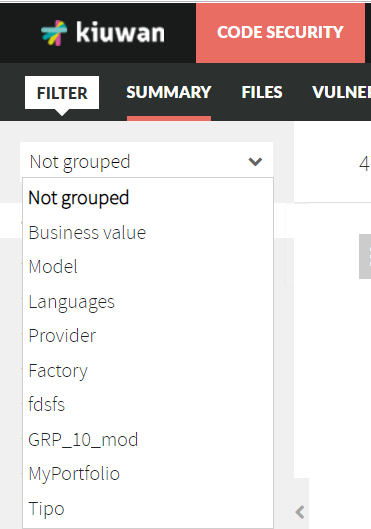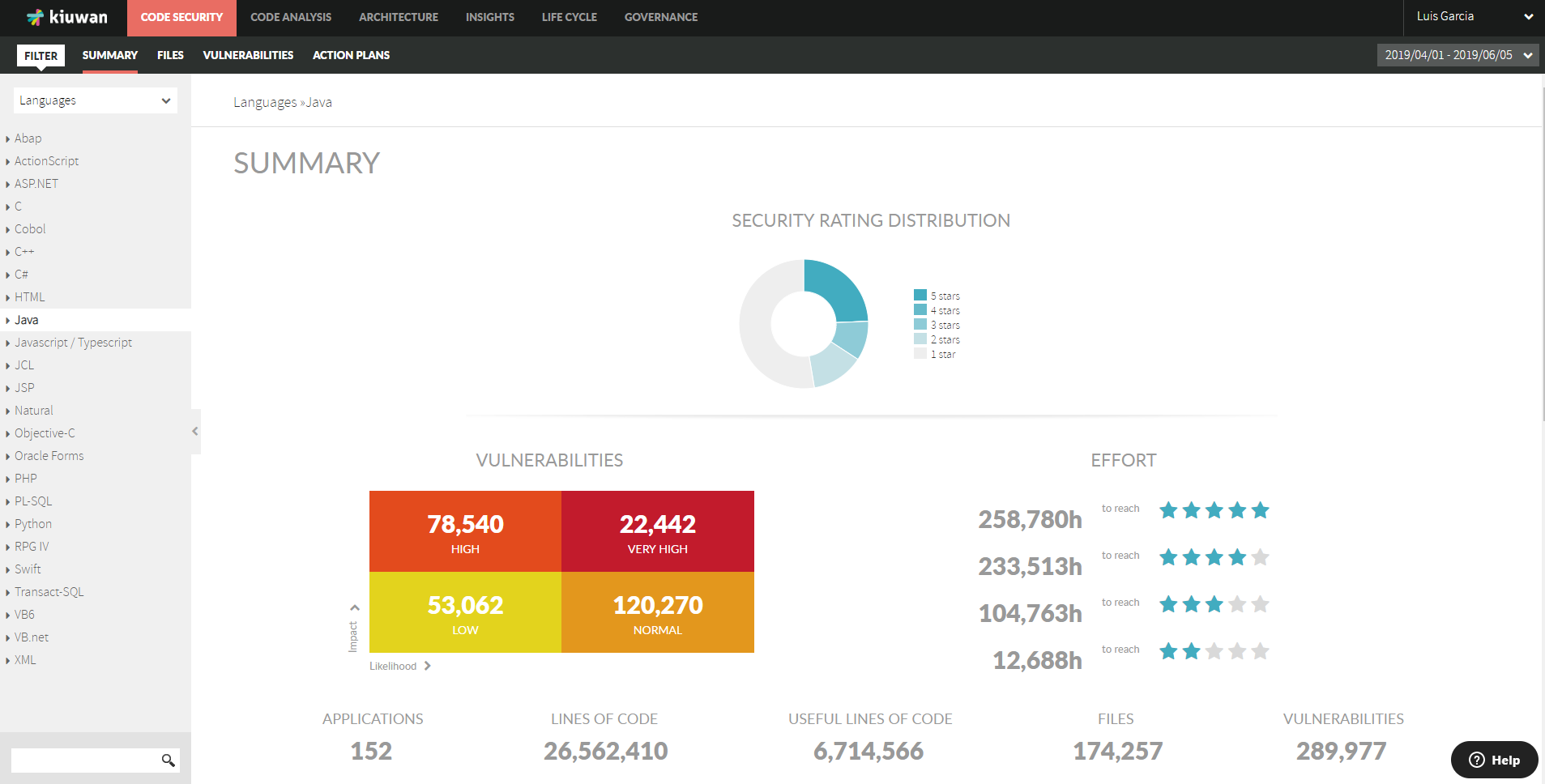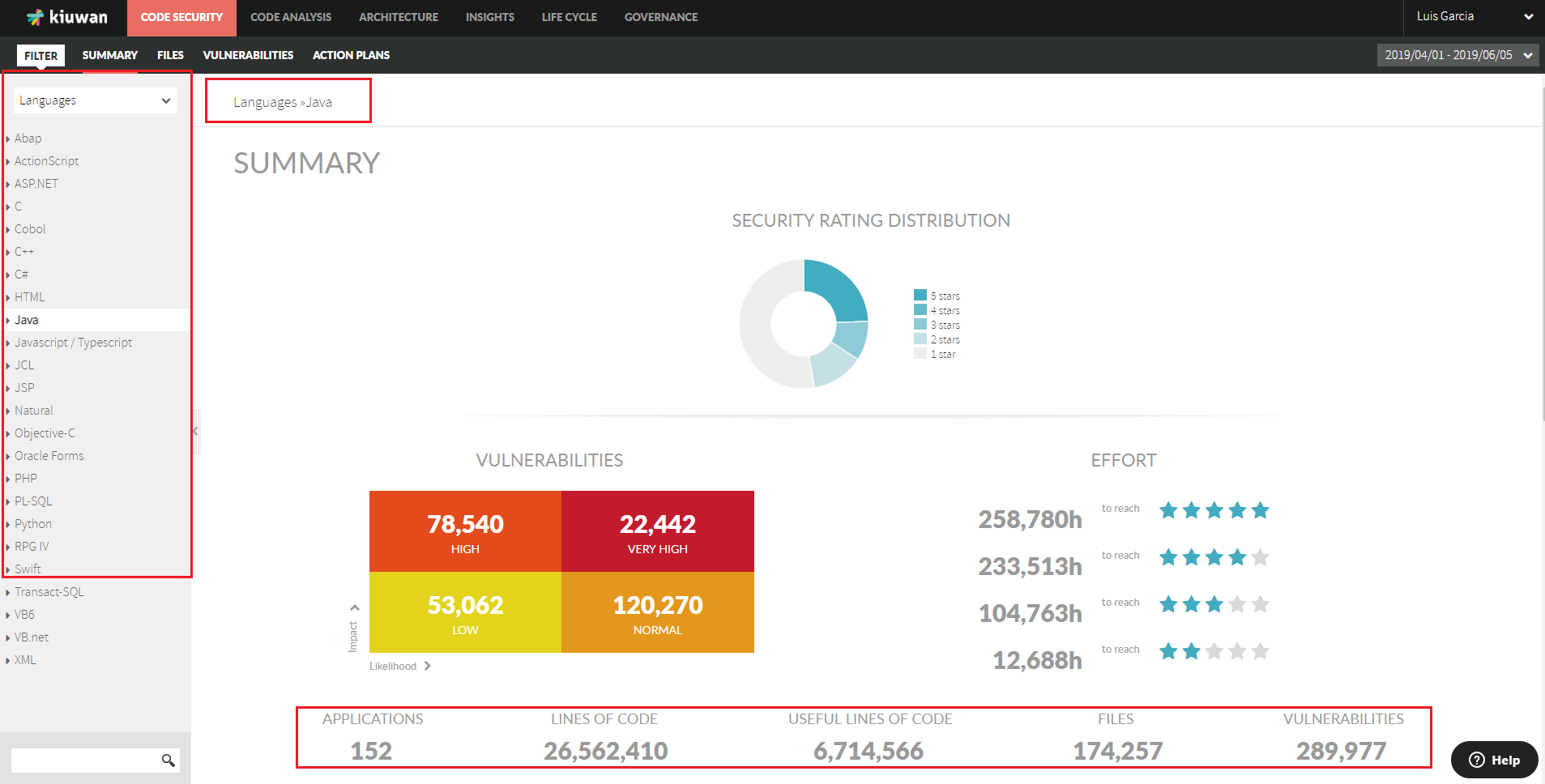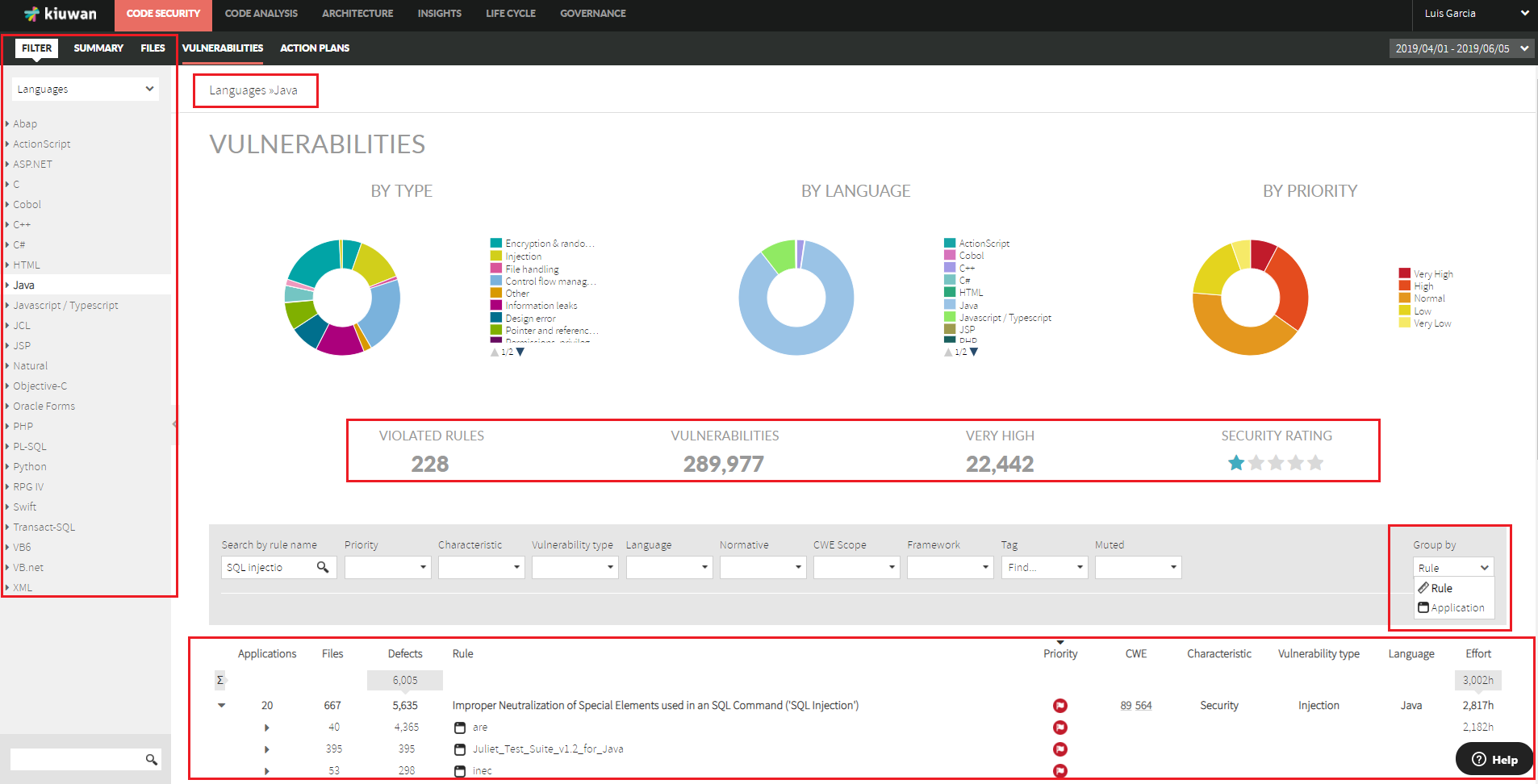New version of CQM and Kiuwan Engine
Main features of this release are:
- Code Security provides aggregated views by portfolio values
- Scala applications are now supported by Kiuwan Insights
- Kiuwan CQM (v2.3.0) and Engine
14 New PL-SQL security rules
9 New Transact-SQL security rules
CQM is the default Model (i.e. a concrete set of active and pre-configured rules):
- If you are using CQM,
- new rules will automatically become active and will be applied to new analyses
- If you are using your own custom model, your model remains unchaged, but you can modify it and activate the new rules (in case you want to be applied to your code).
You can find new rules by comparing this release of CQM against previous version. A detailed description of the behavior of these new rules is available in rule’s description.
A new version of Kiuwan Engine has been released that incorporates bug fixes, performance and reliability improvements in rules and parsers.
Kiuwan Engine is the binary code executed when an analysis is run.
- If the engine is not blocked in your Kiuwan account, the engine will upgrade automatically to the last version of Kiuwan Engine once a new analysis is run
- If the engine is blocked, your kiuwan engine will not be modified.
Code Security provides aggregated views by portfolios values
Code Security provided now the functionality to search and select groups of applications (based on portfolio values)
- Summary page lets you now to group (and search) your applications by Portfolios
- When selecting a portfolio value, you will have access to aggregated views of all the applications that matches the selected value
- This way, you will be able to see not only aggregated metrics but also to discover what are the vulnerabitlities most affecting a set of applications
Kiuwan Insights support for Scala applications
Kiuwan Insights now provides support for processing SBT-based Scala projects.
From build.sbt, Kiuwan Insights:
- extracts external dependencies (3rd party components) used by your app (from Maven or any other configured repo)
- executes obsolescence analysis on those depedencies, and
- NVD is searched for security vulnerabilities affecting components used by your app
New PL-SQL security rules
- Improper Neutralization of Special Elements used in an OS Command ('OS Command Injection')
- Improper Neutralization of Input During Web Page Generation ('Cross-site Scripting')
- Cursor Snarfing
- Use of Hard-coded Credentials
- Unvalidated data in HTTP response header or in cookies ('HTTP Response Splitting')
- Do not allow to control the URL used in a redirect by an unvalidated input
- External Control of File Name or Path
- Improper Neutralization of Input During Web Page Generation ('Cross-site Scripting')
- Server-Side Request Forgery (SSRF)
- Potential malicious code
- Unqualified database items in AUTHID CURRENT_USER routine
- Avoid using an user controlled Primary Key into a query
- Weak cryptographic hashes cannot guarantee data integrity
- Weak symmetric encryption algorithm.
New Transact-SQL security rules
- Improper Neutralization of Special Elements used in an OS Command ('OS Command Injection')
- Dangerous procedure / function called.
- Standard pseudo-random number generators cannot withstand cryptographic attacks.
- Denial of Service by externally controlled sleep time
- Improper Neutralization of Special Elements used in an SQL Command ('SQL Injection')
- Too broad privileges granted.
- Avoid using an user controlled Primary Key into a query
- Weak cryptographic hashes cannot guarantee data integrity
- Weak symmetric encryption algorithm.



